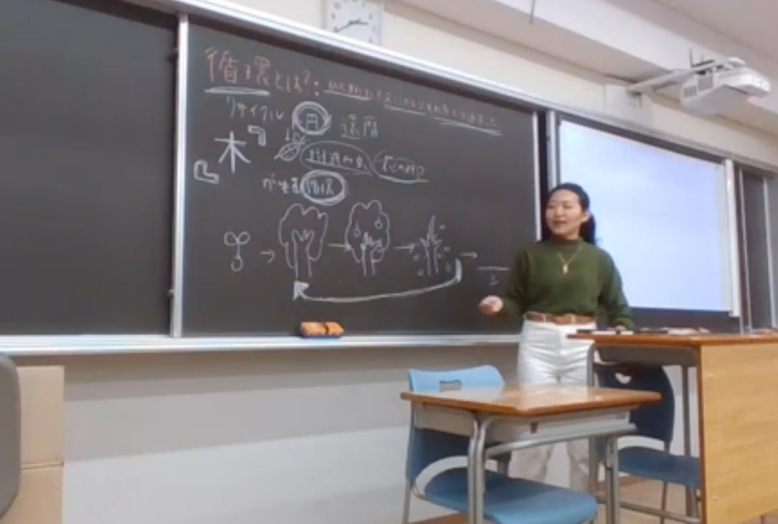
In November 2024, NPO Seibo conducted a lesson themed “Circulation and Its Impacts.” This lesson aimed to deepen the understanding of lunch support in Malawi, Africa, the fair trade coffee sales behind it, and the positive cycle it creates for the environment and people’s growth.
1. Introduction: The Concept of Circulation
At the beginning of the lesson, a free discussion about the word “circulation” took place. Students expressed various images associated with the term, such as recycling, natural cycles, and the shape of a circle, exploring its diverse aspects.
2. Sharing Knowledge
Next, the definition of “circulation” and relevant examples were presented. Through familiar examples like blood circulation and plant growth, the importance of circulation was explained, emphasizing its role in both environmental and social contexts.
3. Case Study: Lunch Support in Malawi
A particular focus was the case study on how coffee from Malawi contributes to international support. Students learned how the sales of coffee are donated to support lunches, gaining insights into the social contributions behind it.
This led to an understanding of how naturally grown coffee from Malawi is safely transported to Japan, sold with proper distribution, and how the sales revenue is returned to the next generation of children in Malawi, linking it to the concept of circulation.
4. Group Activity: Discussing the Impact of Lunch Support
Students were divided into small groups to discuss the impact of lunch support on children in Malawi. They exchanged opinions on the importance of lunch for education, health, and future careers, and time was allocated for presentations.
5. Summary and Relation to SDGs
At the end of the lesson, the concept of circulation was revisited in terms of its societal impacts. The connection to the SDGs (Sustainable Development Goals) was also explained, providing students with an opportunity to consider how their actions affect society.
6. Homework and Future Activities
After the lesson, students were assigned to write an essay on the theme “The Circulation We Can Foster.” They were also encouraged to propose support activities both inside and outside the school.
Through this lesson, students gained the ability to connect the concept of circulation to everyday life and international aid activities, learning key points such as:
-The importance of recognizing environmental and social issues and considering how their actions impact these areas.
-The awareness that receiving education, whether in the least developed countries or Japan, contributes to shaping the future.
-The understanding that supporting education not only connects to aiding the next generation in Africa but also empowers the future lives of Japan’s next generation, reinforcing the perception that everything is interconnected.
We aim to continue collaborating with schools to further promote international understanding and social contribution education. We hope that the knowledge gained in educational settings translates into meaningful support activities.


